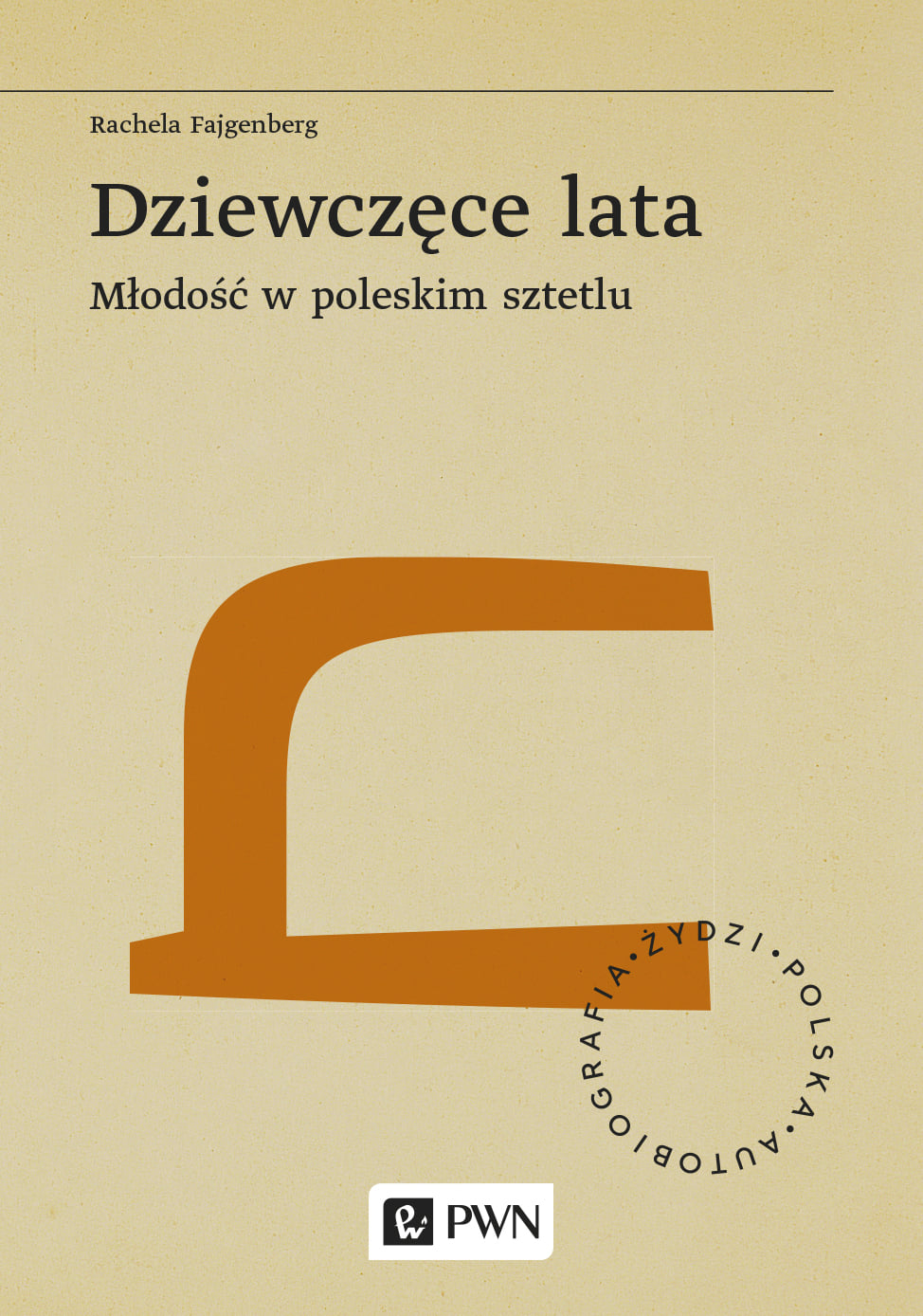Dziewczęce lata. Młodość w poleskim sztetlu [Girlhood. My Youth in a Polesia Shtetl]
Original title: Di Kinder-joren
Author: Rachela Fajgenberg [Rakhel Feygenberg]

Rachela (Rochl) Fajgenberg (Feigenberg, 1885-1972), a writer in Yiddish and Hebrew largely forgotten today, was one of the most popular Jewish authors and journalists of the interwar period. Born to a rabbinical family in Lubań in the Minsk governorate (today Belarus), she began publishing short prose pieces in the Yiddish press before World War I. In 1919, Feigenberg survived a wave of pogroms in the Odessa area, after which she actively participated in collecting and publishing eyewitness accounts of those events. In the 1920s, she circulated between Romania, Poland, France and Palestine, regularly reporting for the Warsaw Yiddish daily Der Moment. She was also involved in the defense of Sholom Schwartzbard during his trial for the assassination of Symon Petliura.
Her journalism covered topics such as the importance of Palestine for Jews, Jewish identity, the problem of assimilation of the younger generation, and perhaps most importantly, women’s issues. Feigenberg settled in Palestine in 1933, where she published mainly in Hebrew under the name Rachel Imri.
In 1945, she founded the Ha-Measef publishing house in Jerusalem, dedicated to printing key works of Yiddish literature in Hebrew. Due to a lack of interest and financial resources, it collapsed after the publication of three books. Feigenberg herself never achieved the position in Israel that she had enjoyed in the diaspora, although she still published a good deal, including a five-volume series entitled Megilot Yehudei Rossiya: 1905-1964 (Chronicles of the Jews of Russia: 1905-1964, Jerusalem 1965).
Feigenberg’s autobiography, published in installments as Di Kinder-yorn (Childhood Years) in 1905 in the St. Petersburg monthly Dos Lebn, was her literary debut, and elicited enthusiastic reviews from both critics and readers. The author described her family on both sides, the daily life of the shtetl that flowed in step with the seasons and religious holidays, and her own adolescence. Her story is rich in ethnographic detail, much of it focused on female spaces in the home and the shtetl.
While her younger brother was studying in the cheder, our young protagonist had to help her mother run the family shop, a tiresome task from which she escaped into dreams and fiction. The extremely popular novels of Shomer (Nochem Meir Szajkiewicz, 1849? -1905) occupied a great deal of her attention. Another prominent motif is the author’s relationship with her mother, as well as the illness and death of the latter.
The story ends after her mother’s death, when the teen-aged narrator was put under her grandmother’s care in Odessa. Although Feigenberg changed some of the details, such as the actual names of the people and places described, there is no doubt that this works closely reflects her personal experiences.
To learn more about this volume and the series click here.

